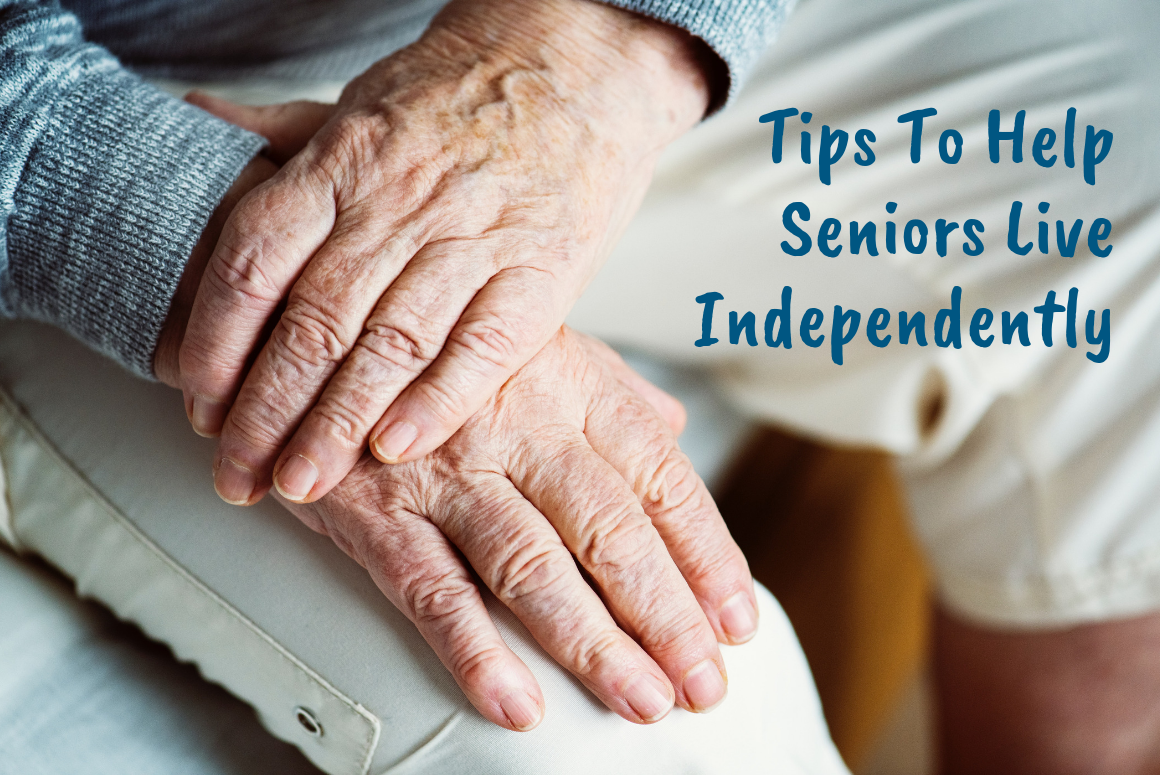Guest post by Jane Garbutt.
Roughly 90% of seniors intend to age in place after turning 65, USA Today reports. Ageing in place means to stay in your existing home for as long as possible and avoid moving to assisted living or a care home. If you have an elderly parent who wants to maintain independence as they grow old, you can help them achieve that goal. By making smart changes to their home, you can help keep your loved one comfortable, safe, and minimize the risk of an emergency. Here’s how to help seniors live independently.
Stay connected with technology
Recent developments in technology make it easier for seniors to live independently while giving families peace of mind. Chat to your senior daily with video chat. Having a clear visual of your loved one and the state of their home can provide you with a more accurate picture of how they are. Make sure they have a medical alert button that is linked to a call center 24/7. Additionally, using ePACT can provide families with a single emergency record that securely stores contact information, your senior’s insurance or care card information, allergies, medication plan, health issues, and past injuries. If emergency strikes, you, your family, and doctor have information at your fingertips. Here’s an additional resource to help seniors age in place happily and safely in the digital age.
Home modifications
Home modifications can help your loved one age in place comfortably and safely with minimal risk of falls and injury. Make sure their home is well-lit. For example, install bright night lights in the hallways and bathroom and adhesive under-cabinet lighting to illuminate countertops. Install grab bars in the bedroom and bathroom, so your loved ones can balance and get around easier. You may even want to hire a contractor to install a walk-in shower and widen doorways for wheelchairs. Flooring is a major cause of accidents, so make sure it’s certified anti-slip. Also, secure all rugs to the floor to prevent them from moving when walked over.
Fire safety
Older adults are 2.5 times more likely to die in a house fire than younger age groups. They also experience a higher number of fire-related injuries. So, make sure your senior’s home has functioning smoke detectors and change the batteries twice a year. If any appliances have fraying or damaged electrical cords, replace them. Heaters should be at least three feet away from flammable materials like curtains, bedding, or furniture. If a fire was to break out, make sure your senior knows never to try and put it out themselves. They should exit the house and call 911 – here’s how to create an evacuation plan in 5 steps to help!
You may even want to hire private care for your loved one — someone to do light housework or cooking or keep them company for one or two hours daily. This can improve the quality of life and ensure safety when you can’t be there. Implementing these practical changes and plans with your loved one will help them maintain independence into later life as easily as possible.
Feature image photo by rawpixel.com from Pexels.
Terms and Conditions
All content provided on this blog is for informational purposes only. The owner of this blog makes no representations as to the accuracy or completeness of any information on this site or found by following any link on this site. The owner will not be liable for any errors or omissions in this information nor for the availability of this information. The owner will not be liable for any losses, injuries, or damages from the display or use of this information. This policy is subject to change at any time.

